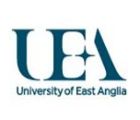Information
Information is any entity or form that provides the answer to a question of some kind or resolves uncertainty. It is thus related to data and knowledge, as data represents values attributed to parameters, and knowledge signifies understanding of real things or abstract concepts. As it regards data, the information's existence is not necessarily coupled to an observer (it exists beyond an event horizon, for example), while in the case of knowledge, the information requires a cognitive observer.
Information Technology
Information technology (IT) is the use of computers to store, retrieve, transmit, and manipulate data, or information, often in the context of a business or other enterprise. IT is considered to be a subset of information and communications technology (ICT).
Intellectual
An intellectual is a person who engages in critical thinking, research, and reflection about society and proposes solutions for its normative problems. Some gain authority as public intellectuals. Coming from the world of culture, either as a creator or as a mediator, the intellectual participates in politics either to defend a concrete proposition or to denounce an injustice, usually by rejecting, producing or extending an ideology, and by defending a system of values.
Intellectual Property
Intellectual property (IP) is a category of property that includes intangible creations of the human intellect, and primarily encompasses copyrights, patents, and trademarks. It also includes other types of rights, such as trade secrets, publicity rights, moral rights, and rights against unfair competition. Artistic works like music and literature, as well as some discoveries, inventions, words, phrases, symbols, and designs, can all be protected as intellectual property. It was not until the 19th century that the term "intellectual property" began to be used, and not until the late 20th century that it became commonplace in the majority of the world.
Law
Law is a system of rules that are created and enforced through social or governmental institutions to regulate behavior. Law is a system that regulates and ensures that individuals or a community adhere to the will of the state. State-enforced laws can be made by a collective legislature or by a single legislator, resulting in statutes, by the executive through decrees and regulations, or established by judges through precedent, normally in common law jurisdictions. Private individuals can create legally binding contracts, including arbitration agreements that may elect to accept alternative arbitration to the normal court process. The formation of laws themselves may be influenced by a constitution, written or tacit, and the rights encoded therein. The law shapes politics, economics, history and society in various ways and serves as a mediator of relations between people.
Property
Property, in the abstract, is what belongs to or with something, whether as an attribute or as a component of said thing. In the context of this article, it is one or more components (rather than attributes), whether physical or incorporeal, of a person's estate; or so belonging to, as in being owned by, a person or jointly a group of people or a legal entity like a corporation or even a society. Depending on the nature of the property, an owner of property has the right to consume, alter, share, redefine, rent, mortgage, pawn, sell, exchange, transfer, give away or destroy it, or to exclude others from doing these things, as well as to perhaps abandon it; whereas regardless of the nature of the property, the owner thereof has the right to properly use it (as a durable, mean or factor, or whatever), or at the very least exclusively keep it.
Technology
Technology ("science of craft", from Greek τέχνη, techne, "art, skill, cunning of hand"; and -λογία, -logia) is first robustly defined by Jacob Bigelow in 1829 as: "...principles, processes, and nomenclatures of the more conspicuous arts, particularly those which involve applications of science, and which may be considered useful, by promoting the benefit of society, together with the emolument [compensation ] of those who pursue them" .
Intellectual
No people has ever despised and distrusted the intellect and intellectuals more than the British.
Leonard Woolf, "G.E. Moore", Encounter magazine, January 1959, quoted in Richard Hofstadter, Anti-Intellectualism In American Life, New York : Knopf, 1963. (p. 20).
Property
The doctrines held by the early Fathers of the Church on the nature of property are perfectly uniform. They almost all admit that wealth is the fruit of usurpation, and, considering the rich man as holding the patrimony of the poor, maintain that riches should only serve to relieve the indigent; to refuse to assist the poor is, consequently, worse than to rob the rich. According to the fathers, all was in common in the beginning: the distinctions mine and thine, in other words, individual property, came with the spirit of evil.
Francesco Saverio Nitti, Catholic Socialism (1895), pp. 65-66
Property
We are a band of brothers and native to the soil, fighting for the property we gained by honest toil.
Harry McCarthy, "The Bonnie Blue Flag" (1861).

